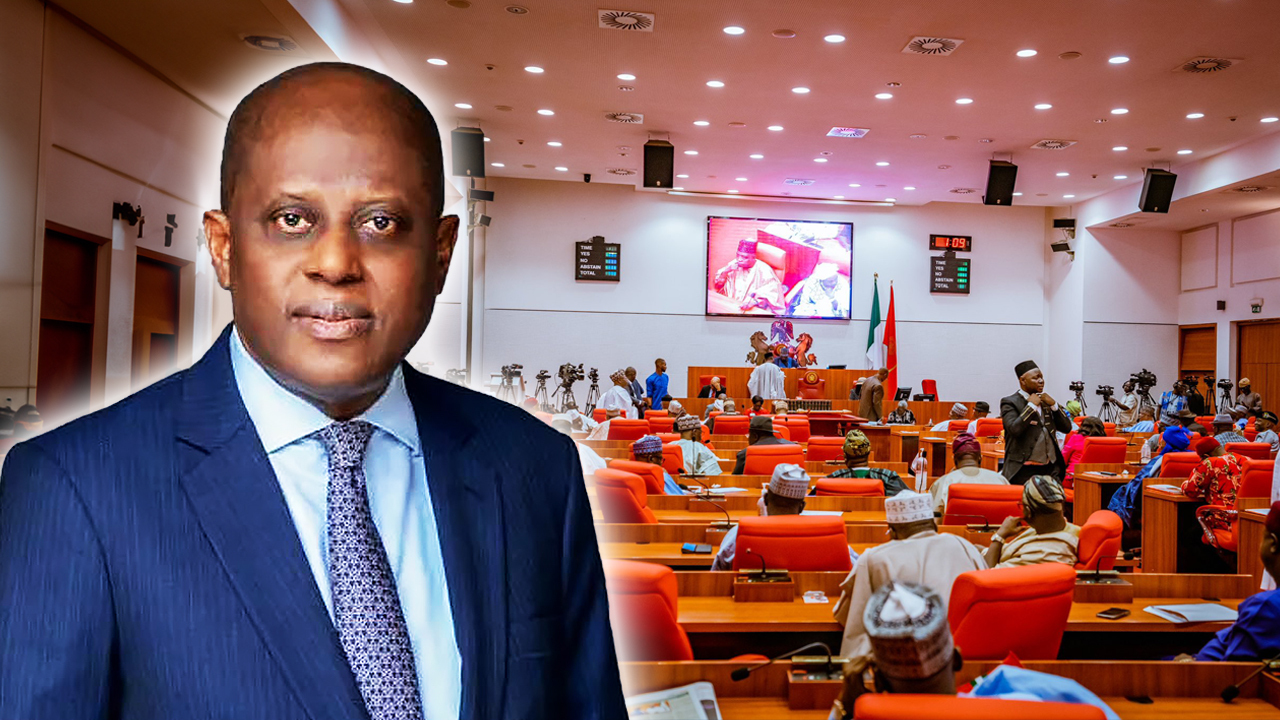Senate has moved to ban CBN Governor and Deputies from participating in politics.
Newsonline Nigeria reports that the Senate on Wednesday considered two bills seeking to ban the Governor of the Central Bank of Nigeria (CBN) and Deputy Governors of the apex bank from participating in politics.
This Nigeria news platform understands that two bills passed a second reading during plenary at the upper chamber.
ALSO: Tinubu Promises N18bn Group Life Assurance Policy for fallen heroes’ families
The Senate passed them after the consideration of two similar bills sponsored by Sunday Karimi, the lawmaker representing Kogi West Senatorial District and Darlington Nwokocha, lawmaker representing Abia Central Senatorial District.
During the debates on the bills, the lawmakers proposed that Section 9 be further amended to insulate the CBN governor and deputies from participating in politics while in service.
Both senators equally proposed that the Auditor-General of the Federation, Chairmen of the Federal Inland Revenue Service (FIRS), and Chartered Institute of Bankers in Nigeria (CIBN) be represented on the board of the CBN.
Senator Adams Oshiomhole from Edo North Senatorial District, however, opposed the second reading of the bill, arguing that the case of the immediate past Governor of the CBN, Godwin Emefiele, which was the case in reference was a consequence of the absence of governance and the will to enforce the extant laws.
The Deputy Senate President, Jibrin Barau, therefore gave the Senate Committee on Banking and Finance two weeks to report back on the CBN Amendment Bill.
This is coming 17 months after the presidential Nomination and Expression of Interest forms of the All Progressives Congress (APC) was purchased for Emefiele.
The situation ignited negative reactions from the public, with many Nigerians and groups calling for Emefiele’s resignation or sack by the then President, Muhammadu Buhari.
Despite the outcry, Emefiele maintained his position as the CBN governor until Buhari completed his tenure as President and handed over to his successor, President Bola Tinubu.
Coming on board, Tinubu embarked on reforms in the financial sector by suspending Emefiele from office as well as prosecuting him in court.















